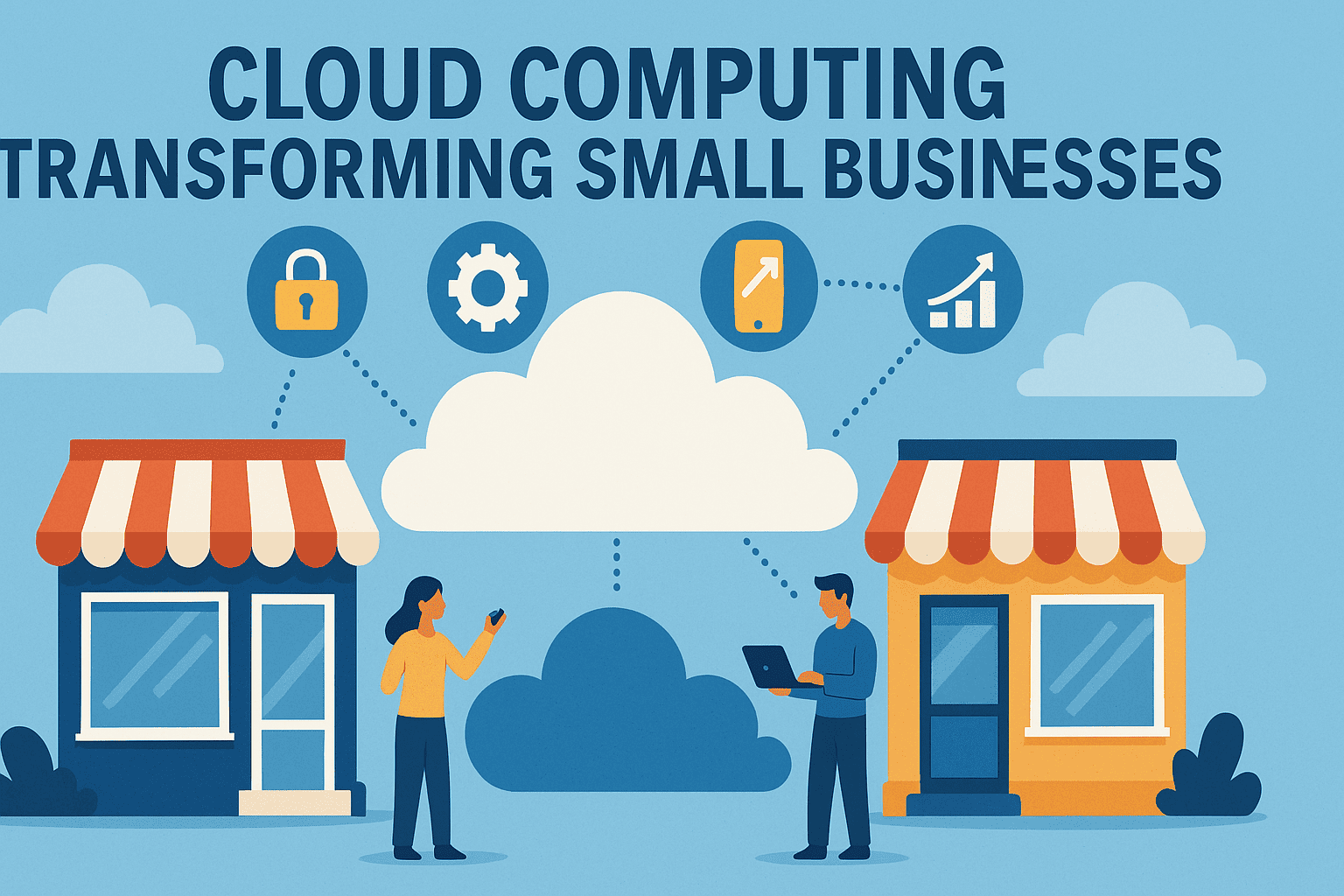Cloud computing has fundamentally reshaped the technological landscape, especially for small businesses. It provides scalable resources and essential tools previously available only to large corporations with deep pockets. By migrating to cloud platforms, small businesses can leverage powerful capabilities at a fraction of traditional costs, making them more competitive, agile, and secure. This article delves deeply into how cloud-computing has revolutionized small-businesses.
Contents
What is Cloud Computing?
Cloud computing refers to delivering computing resources like servers, storage, databases, networking, software, and more over the internet. Businesses using cloud services only pay for what they use, typically on a subscription basis. This approach significantly reduces upfront infrastructure investments and maintenance costs.
Types of Cloud Services
Cloud-computing services come in three primary models:
- Infrastructure as a Service (IaaS): Businesses rent hardware resources like servers and storage.
- Platform as a Service (PaaS): Provides a platform allowing users to develop, run, and manage applications without worrying about underlying infrastructure.
- Software as a Service (SaaS): Delivers software applications over the internet, such as email, CRM, or office productivity tools.

How Cloud Computing Transforms Small Businesses
Cloud computing brings multiple transformative benefits to small-businesses, helping them grow sustainably and efficiently.
Cost Efficiency
Cloud computing drastically cuts costs by eliminating the need for purchasing expensive hardware and software licenses upfront. Instead, small-businesses subscribe to affordable monthly or annual services, adjusting their spending based on actual usage. Maintenance costs are virtually eliminated, reducing IT expenditure significantly.
Scalability and Flexibility
The cloud offers unmatched scalability. Businesses can quickly scale resources up or down based on their needs. During periods of high demand, such as seasonal peaks or promotional campaigns, resources can be expanded instantly, ensuring continuous performance without downtime. This flexibility enables small businesses to compete effectively with larger firms.
Enhanced Collaboration
Cloud solutions facilitate seamless collaboration among team members, no matter where they are located. Applications such as Google Workspace and Microsoft 365 allow teams to share, edit, and manage documents in real-time, promoting productivity and efficient teamwork.
Improved Security and Compliance
Contrary to traditional beliefs, cloud platforms offer robust security features. Providers continuously update and patch systems, protecting against vulnerabilities. Moreover, cloud providers typically adhere to industry standards and compliance regulations, reducing risks for businesses dealing with sensitive data.
Disaster Recovery and Backup
Cloud services provide automated backup and robust disaster recovery solutions. Data stored in the cloud is protected from hardware failures, theft, or natural disasters. Cloud-based disaster recovery solutions ensure business continuity, significantly reducing downtime and data loss risks.

Implementing Cloud Solutions in Small Businesses
Transitioning to cloud computing should be strategic and well-managed. Here are essential steps small businesses should follow:
Identify Business Needs
Begin by assessing your business requirements. Determine which processes can benefit from cloud services and evaluate how cloud solutions align with your long-term business goals.
Choose the Right Cloud Provider
Selecting an appropriate cloud provider is crucial. Evaluate providers based on performance, reliability, security, support, scalability, and cost-effectiveness. Popular providers like Amazon Web Services (AWS), Microsoft Azure, and Google Cloud offer comprehensive services tailored for small-businesses.
Ensure Seamless Migration
Migration to the cloud should be carefully planned. Consider migrating in phases to minimize disruption. Engage cloud experts to ensure a smooth transition and training for your team.
Monitor and Optimize Continuously
After migration, continuously monitor cloud usage and optimize resource allocation. Regularly reviewing your cloud strategy ensures your business maximizes the benefits and keeps costs under control.
Real Life Examples of Small Businesses Benefiting from Cloud Computing
Retail Stores
Small retail businesses leverage cloud-based e-commerce platforms like Shopify to sell products online easily. Cloud services enable these businesses to manage inventory efficiently, process payments securely, and offer excellent customer experiences without significant investments.
Professional Services
Accounting, legal, and consultancy firms use cloud services for secure data storage, easy file sharing, and efficient client management. Applications like QuickBooks Online and Salesforce CRM streamline client interactions, automate administrative tasks, and enhance service delivery.
Creative Agencies
Creative agencies benefit immensely from cloud-computing through collaborative platforms like Adobe Creative Cloud. Cloud-based tools enable remote collaboration, allowing designers and developers to share and edit creative projects in real-time, significantly improving project turnaround times.
Future Trends in Cloud Computing for Small Businesses
Cloud technology is continually evolving. Emerging trends like artificial intelligence (AI), machine learning (ML), and the Internet of Things (IoT) integrated into cloud solutions promise greater automation, advanced analytics, and innovative business models. Small-businesses that embrace these innovations early will maintain a competitive edge.
Conclusion
Cloud computing undeniably transforms small businesses by offering cost-effective, scalable, secure, and innovative solutions. It empowers small-businesses to operate with agility, collaborate efficiently, and maintain a robust security posture, positioning them strongly against larger competitors. By strategically adopting cloud services, small-businesses can sustainably grow and thrive in an increasingly digital marketplace.





2 comments